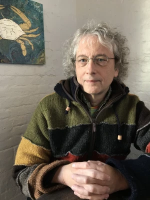Dan Torsch’s older brother John remembers. It was about 17 years ago.
“I can trace his addiction back to one 100 milligram morphine pill,” Torsch said.
They were teenagers, partying in Ocean City. Drinking, smoking weed, snorting cocaine. John offered his brother the morphine pill. The next morning John said he woke up with a hangover.
“All I wanted to do was lay on the beach, maybe smoke a joint and eat some food,” Torsch said. “What do you think the very first thing Dan asked me when he woke up? ‘You got any more of those pills?’”
John said Dan clearly had a disposition for opium addiction. He struggled with it for seven years until his death in 2010. He was 24.
John has been clean for five years. He’s helping his mother Toni run the Daniel Carl Torsch Foundation. They are using their grief to fuel a drive to help others with addiction. The family also is pushing the county to make changes to how it fights opioids.
Toni Torsch, who lives in Perry Hall, said they want to help other families avoid such a devastating loss.
“We felt that we were cheated,” Toni Torsch said. “There’s a part of us that will never be the same.”
They help families, particularly under-insured families, find treatment they might not be able to afford.
John Torsch said, “Unfortunately, your financial means and your level of insurance dictates the type, length and quality of treatment you’re going to receive.”
Toni Torsch said they helped 126 people last year.
Addiction experts say it’s critical to help an addict asking for help right away. Otherwise they might just walk away. And that’s a huge problem in Baltimore County, where on-demand treatment is not always available. So the county has created a system of peer counselors who try to help addicts hang on until treatment is available.
Baltimore County Deputy Health Officer Della Leister said the counselors are critical.
“Because they are filling that gap,” Leister said. “And probably five years ago we didn’t have nearly the peers that we do now.”
Leister said lack of treatment is a problem statewide.
Anne Arundel County has a program called Safe Stations. Someone who wants treatment for addiction can walk into a police or fire station in the county and start getting help immediately. But first they have to get to the station. Leister said Baltimore County instead tries to reach people where they are.
“People don’t have to come to us,” Leister said. “We will go to them through EMS, through police referrals, through hospital referrals, through calls to our REACH line.”
There is also no long-term inpatient facility in Baltimore County. But that should change in July, when one is scheduled to open in the shuttered Rosewood Center in Owings Mills.
The county started a needle exchange program about six months ago, something the city has had for more than 20 years.
State Senator Clarence Lam, a doctor whose district covers parts of Baltimore County said the county has been slow in setting up programs and clinics because of NIMBYism, not in my back yard.
“Finally now, we are turning a corner when people are recognizing that it’s their family, their relatives” Lam said. “They know friends, colleagues, co-workers, neighbors down the street that are addicted and they’re aware of that.”
John Torsch said, “It’s time to take the gloves off. It’s time to stop pussy footing around this problem and being so politically correct.”
Both the Torsch Foundation and the county provide Naloxone training. Naloxone can reverse an overdose. The county also has a number you can call to get help. 410-88-REACH.




